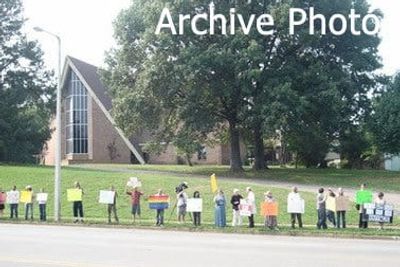In an update to a 1997 resolution "Appropriate Therapeutic Responses to Sexual Orientation," the APA now advises that mental health professionals should avoid telling clients that they can change their sexual orientation through therapy or other treatments.
"Contrary to claims of sexual orientation change advocates and practitioners, there is insufficient evidence to support the use of psychological interventions to change sexual orientation," said Judith M. Glassgold, PsyD, chair of the task force which examined the efficacy of so-called reparative therapy.”
APA appointed the six-member Task Force on Appropriate Therapeutic Responses to Sexual Orientation in 2007 to review and update APA's 1997 resolution, "Appropriate Therapeutic Responses to Sexual Orientation," and to generate a report. APA was concerned about ongoing efforts to promote the notion that sexual orientation can be changed through psychotherapy or approaches that mischaracterize homosexuality as a mental disorder.
The task force examined the peer-reviewed journal articles in English from 1960 to 2007, which included 83 studies. Most of the studies were conducted before 1978, and only a few had been conducted in the last 10 years. The group also reviewed the recent literature on the psychology of sexual orientation.
"Unfortunately, much of the research in the area of sexual orientation change contains serious design flaws," Glassgold said. "Few studies could be considered methodologically sound and none systematically evaluated potential harms."
Looking back at Zach
Zach Stark was for many the face of the vulnerable, oppressed gay teen.
Stark, then 16 and living in Bartlett, Tenn., chronicled his coming-out story in his MySpace blog.
It would take place at Refuge, a youth program of Love in Action International, a Memphis group that runs a religion-based program intended to change the sexual orientation of gay men and women.
As mandated by Refuge, Stark's blog posts stopped the day he entered the facility, but debate and outrage over such programs did not.
A New York Times story published July 17, 2005, shortly after Stark entered Refuge, brought the matter to the forefront of the mainstream media with the headline “Gay Teenager Stirs a Storm.”
In that story, former teacher and GLSEN Executive Director Kevin Jennings told the New York Times, “All reputable health and education professional organizations have clearly and unequivocally denounced this ‘treatment’ as quackery.”
Closer to home, young people from the area organized a protest outside the Love In Action facility soon after the Stark was admitted to the program.
As days passed, the group's numbers swelled as the teens were joined by a wide range of people from the community forming what they called the Queer Action Coalition (QAC), concerned about Stark’s mental health after reading his ominous blog posts.
"It's like boot camp," Stark wrote before entering the facility. "If I do come out straight, I'll be so mentally unstable and depressed it won't matter."
In response to the allegations of child abuse made by QAC, the Memphis Department of Children’s Services launched an investigation into the program and reported finding no abusive practices present as O&AN previously reported.
Love In Action is one of three gay-to-straight ministries in Tennessee listed on Exodus International, a site that touts itself as the largest information and referral ministry in the world addressing homosexual issues. Others include Harvest USA in Chattanooga and The Sight Ministry in Nashville which aim to heal the “sexually broken” according to their Web sites.
The site also lists two churches that “embrace individuals affected by homosexuality while holding to Biblical sexual standards” located in Brentwood and Collierville and one counselor in Knoxville.
